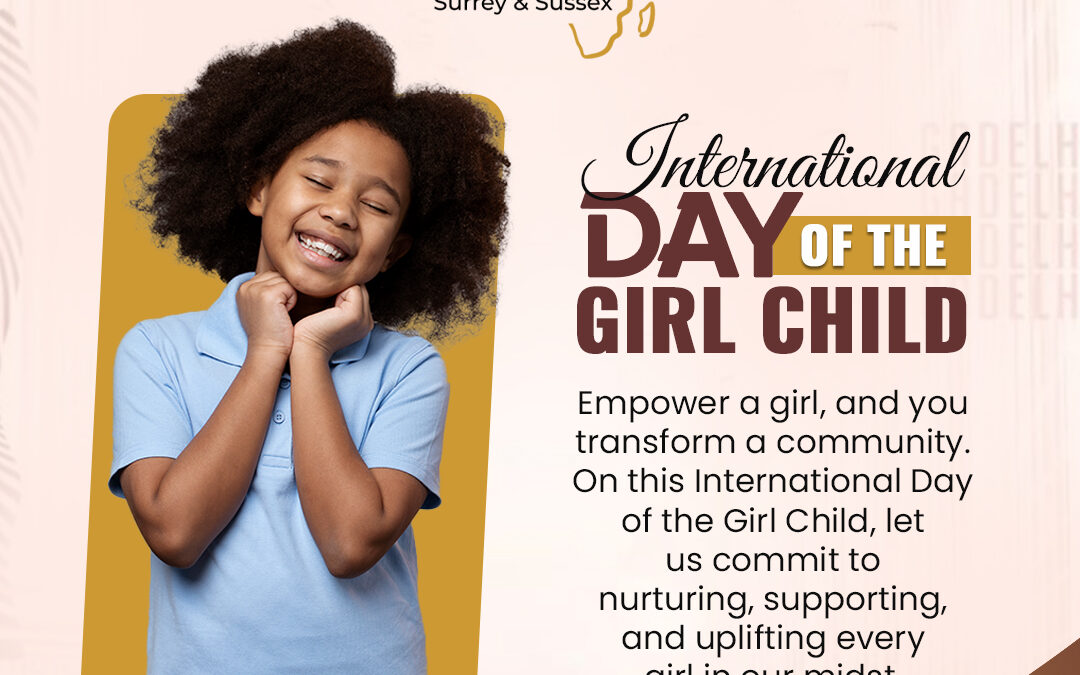Every year on October 11, the world comes together to celebrate the International Day of the Girl Child, a day dedicated to amplifying the voices and rights of girls everywhere. In 2024, this day holds even more significance as the global community reflects on the strides made in advancing gender equality, while acknowledging the challenges that remain. Across the globe, millions of girls continue to face barriers to education, healthcare, and freedom, yet they also stand as symbols of hope, resilience, and the promise of a better future. This year’s theme, “Invest in Girls’ Rights: Our Time is Now,” serves as a powerful reminder that change must happen today to secure a brighter tomorrow.
Education remains at the heart of every girl’s empowerment journey. Yet, an estimated 129 million girls worldwide remain out of school. Whether due to poverty, conflict, or cultural norms, many girls are denied the right to education, curbing their potential and limiting their future opportunities. Access to quality education is more than just learning basic skills—it’s a critical lifeline to independence, self-worth, and economic freedom. Education equips girls with the tools to break the cycle of poverty, make informed decisions about their lives, and contribute to the socioeconomic growth of their communities.
In many parts of the world, harmful practices like child marriage and female genital mutilation (FGM) continue to threaten the rights of girls. According to UNICEF, nearly 12 million girls are married before the age of 18 each year, robbing them of their childhood and often subjecting them to violence and health risks. Despite global campaigns against these practices, deep-rooted traditions persist in many societies, posing a significant challenge to achieving gender equality. The International Day of the Girl Child 2024 calls for stronger legislation, community education, and global advocacy to protect every girl from such practices.
Healthcare is another critical area where girls face disparities. Girls often lack access to reproductive health services and information, leading to high rates of adolescent pregnancies, unsafe abortions, and maternal mortality. In regions where healthcare infrastructure is weak, these issues are compounded. Investing in girls’ health means not only providing medical services but also ensuring access to information that can help them make informed decisions about their bodies and futures. Girls need to be at the center of healthcare policies that prioritize their unique needs and vulnerabilities.
Economic empowerment is a pivotal aspect of improving the lives of girls. When girls are educated and have access to economic opportunities, they are more likely to uplift not only themselves but their entire families. However, economic inequality remains a barrier. Many girls are forced into labor at a young age, or their work goes unrecognized and unpaid. By investing in programs that teach girls entrepreneurial skills, provide mentorship, and support small business initiatives, societies can unlock the immense potential that girls bring to the global economy.
Technology plays a transformative role in advancing girls’ rights in the digital age. However, many girls, especially in rural and underdeveloped regions, lack access to the internet and technological tools, widening the digital divide. By ensuring that girls have access to digital literacy and technology, we empower them to become innovators, leaders, and change-makers in the 21st century. Initiatives like “Girls in STEM” and tech-focused education are crucial to preparing the next generation of female leaders.
As we celebrate the International Day of the Girl Child 2024, it is clear that the fight for girls’ rights is far from over. Every girl deserves the chance to live in a world where she can reach her full potential, free from discrimination, violence, and inequality. for us at the Africa Community in Surrey and Sussex, ACISS, this day is not just a reminder of the work that still needs to be done but a call to action for governments, organizations, and individuals to invest in girls. When we invest in girls, we invest in a future where everyone thrives.

